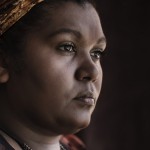
Thanks to improved health care services and increased awareness of health issues, more Aboriginal and Torres Strait Islander people are living for longer.
With significant numbers of Indigenous Australians now reaching the age of 75, the Australian Association of Gerontology (AAG) has highlighted the need for a greater range of specialist aged care services.
“The current generation of older Aboriginals in Australia have experienced much change and hardship in their life,” says Professor Tony Broe, President of the AAG. “From the dispossession of their land, their children and even their rights. These sorts of life events can and are having a big impact on health in old age, particularly with the onset of dementia.”
While 2006 figures show that Aboriginal Australians still live on average 20 years less than non-Indigenous Australians and 15 years less than Indigenous people in the USA, Canada and New Zealand, Aboriginal health and mortality has improved over the three decades since obtaining basic rights.
“The downside to this is that with increased lifespan, more Aboriginal people will be at risk of dementia,” says Prof Broe. “And unfortunately, our current health system is not equipped to deal with the cultural issues that will arise for these people, leaving them isolated and with poorer access to essential services.”
According to the AAG, many elderly people who have experienced trauma in their lives often revert to their past in old age. As a result, they need specialist care and support services that take into account any cultural issues.
Aboriginal people also have higher rates of head trauma and brain injury, higher alcohol and drug abuse and poorer nutrition. These are all potential risk factors for dementia. People from Aboriginal and Torres Strait Islander communities are also likely to need aged care services earlier in life compared to the non-Indigenous population.
The AAG believes these issues needs to be addressed well before the onset of old age.
“We know that better brain functioning and brain growth can reduce the risk of dementia,” says Prof Broe, “so we need to look at improving education at all levels for Indigenous Australians.”
Other areas that can help to improve the health of ageing Indigenous people that will be include:
- Better access to jobs;
- Ongoing education and mental activity;
- Moderate alcohol consumption and better overall health and nutrition;
- Increasing cultural awareness in the aged care sector; and
- The creation of support groups and networks for older Indigenous Australians.
There are a variety of ways that older people from Aboriginal and Torres Strait Islander communities can access residential and community aged care services. Information about the location and types of aged care services available specifically for Indigenous people is available by calling the Commonwealth Carelink Centre on 1800 052 222.
For more general information about aged care support services, including copies of other Information Sheets, ask at your local AMS, contact the Aged Care Information Line on 1800 500 853 or go to www.health.gov.au/ageing

Comments are closed.